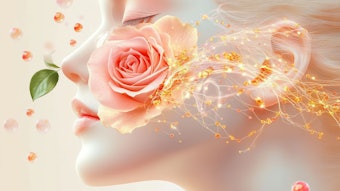I do not find downtown Barcelona as beautiful as others do. I have traveled all over the world in a long life of research and adventures and I’ve seen wonderful places such as mysterious Luang Prabang in secluded Laos with its thousands of lovely Buddhist temples in the middle of the jungles and the old royal houses made of polished teak wood on the banks of the Mekong River, and the South Pacific paradises of Fiji, Samoa, the Cook Islands and French Polynesia, including some of the most beautiful landscapes in the world. Barcelona has some beautiful corners, such as the Gothic Quarter or parts of the so-called “Eixample” with its many modernist jewels. (However, I am a very classical man and do not consider “modernism” exquisitely beautiful—let’s put the term as just “beautiful.”) Downtown Barcelona is quite noisy and not nearly green enough. While there are many details to discover and rediscover in the old houses, the whole area we call greater Barcelona surpasses downtown.
The surrounding areas where I live are a real paradise. The city encompasses landscapes of unparalleled beauty combining lovely forested coastline mountains that I have ridden across inch by inch with my horses, taking in impressive marine views of clean white sand beaches stretching 50 km north and around 30 km south. However, such beauty has been partially destroyed by lousy city planning, including a train line that runs along the coast and a National Road bisecting the wonderful beaches and small towns. These towns possess wonderful old Catalan houses—some of them very precious—that were built in a time when people had less technology than today, yet were cleverer since they still enjoyed philosophy, beauty and peace of mind. This was a time when a man’s word was paramount, with fewer lawyers and notaries, a time when people used to have the smart and healthy Spanish siesta, a time that was less hectic, less programmed, less computerized and more human than our “great rational and democratic time of supreme harmony,” the pride of the European Union’s leaders.
Lessons of the Past
I repeat my points from earlier articles sensing that we tend to believe that everything we know has been learned in the last 50 years. Unfortunately, nobody remembers that, during these years of great scientific progress—a positive progress accepted by me since I work at least eight hours a day researching with my personal GC/MS—we have forgotten the wisdom of our ancestors over the last 2,500 years. This has lead society to a wasteland close to desolation. It is such a pity that the wisdom expressed in Greek philosophy is so forgotten, because these are our greatest Western origins, our real shared soul and values. However, these shared values also are the cradle and reasoning behind the great achievement called the European Union. The European Union is one of the most positive achievements of our common history, but it must be discussed further, finalized and improved.
As I said in 2004, in a problematic world of desolation and injustice, the eternal art of perfumery blossoms. It is perhaps today’s most successful art. The creation of art has declined in our society. The artists of Meissen, Sèvres and Limoges no longer create their great porcelains due to the rational materialistic ideas that flourished beginning at the end of the 18th century. We do not have time to “waste” fashioning such beautiful objects, which have the ability to warm the heart, soul and conscience of sensitive people. We do not paint like the painters of the past because we do not have time to do this anymore, since a good Rubens—one of my favorite painters—required hundreds of hours to be completed. We no longer have the time to decorate the façades of the houses of our cities; this is one of the greatest and inhuman calamities of the 20th century. Everything is iron, steel, coldness, ice and functionalism. Still, as a rebellion against the disappearance of the essential elements of life that we will never forget, we create great perfumes. Fragrance lovers buy these scents, always seeking out better and better ones as a collective obsession. This is the pure air on the horizon, the realization that contemporary culture needs something higher, more cultured and sensitive. I believe evolution is coming closer and closer. The world is changing, and if we know how to do it, without fanaticism and violence, we will overcome the greater creative sins of the 20th century.
Other topics discussed: Humanity in Creation, Magnolia and Lily of the Valley, Scent and Emotion, Magnolia and Lily of the Valley in Perfumery, Eau de Magnolia










